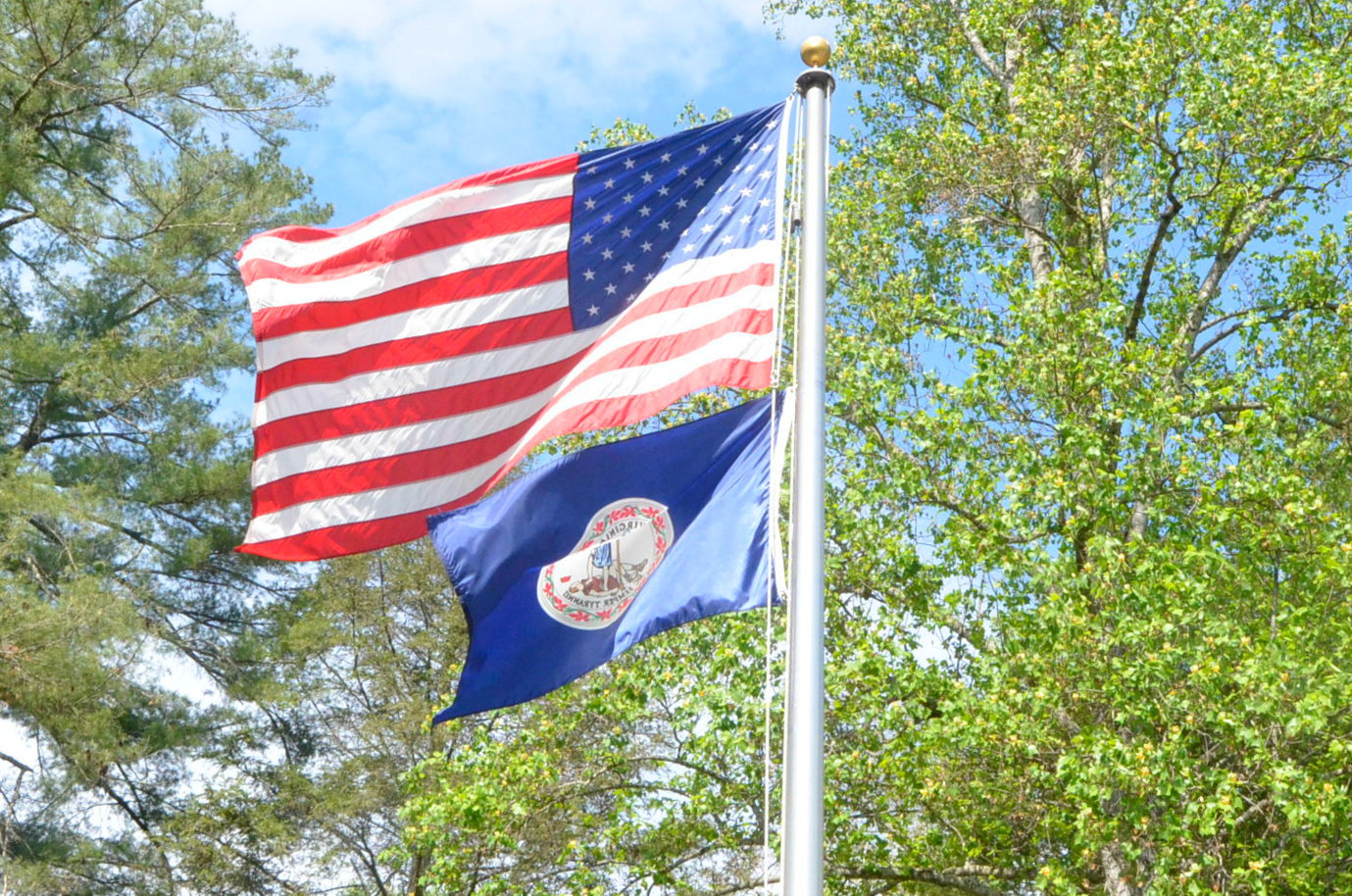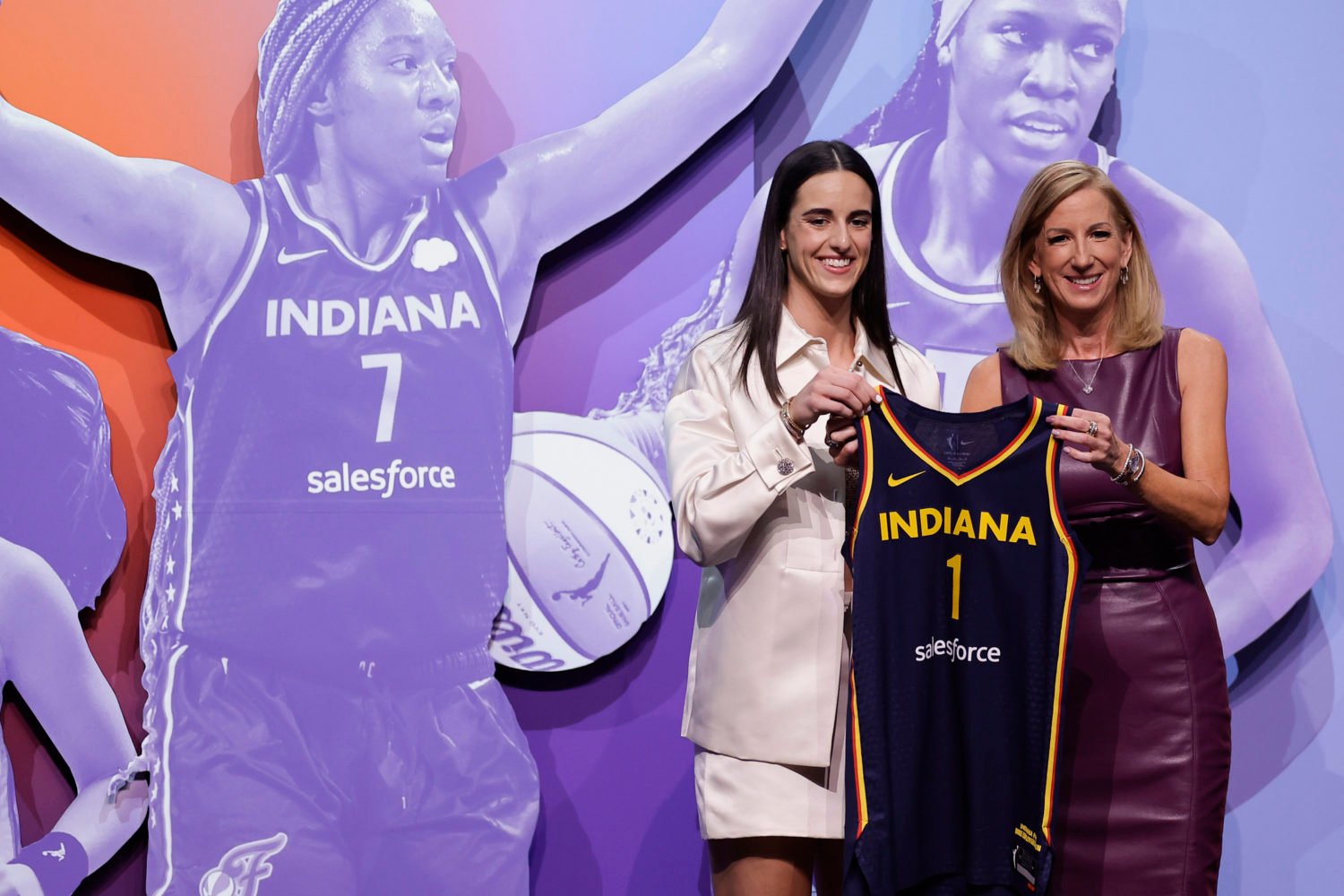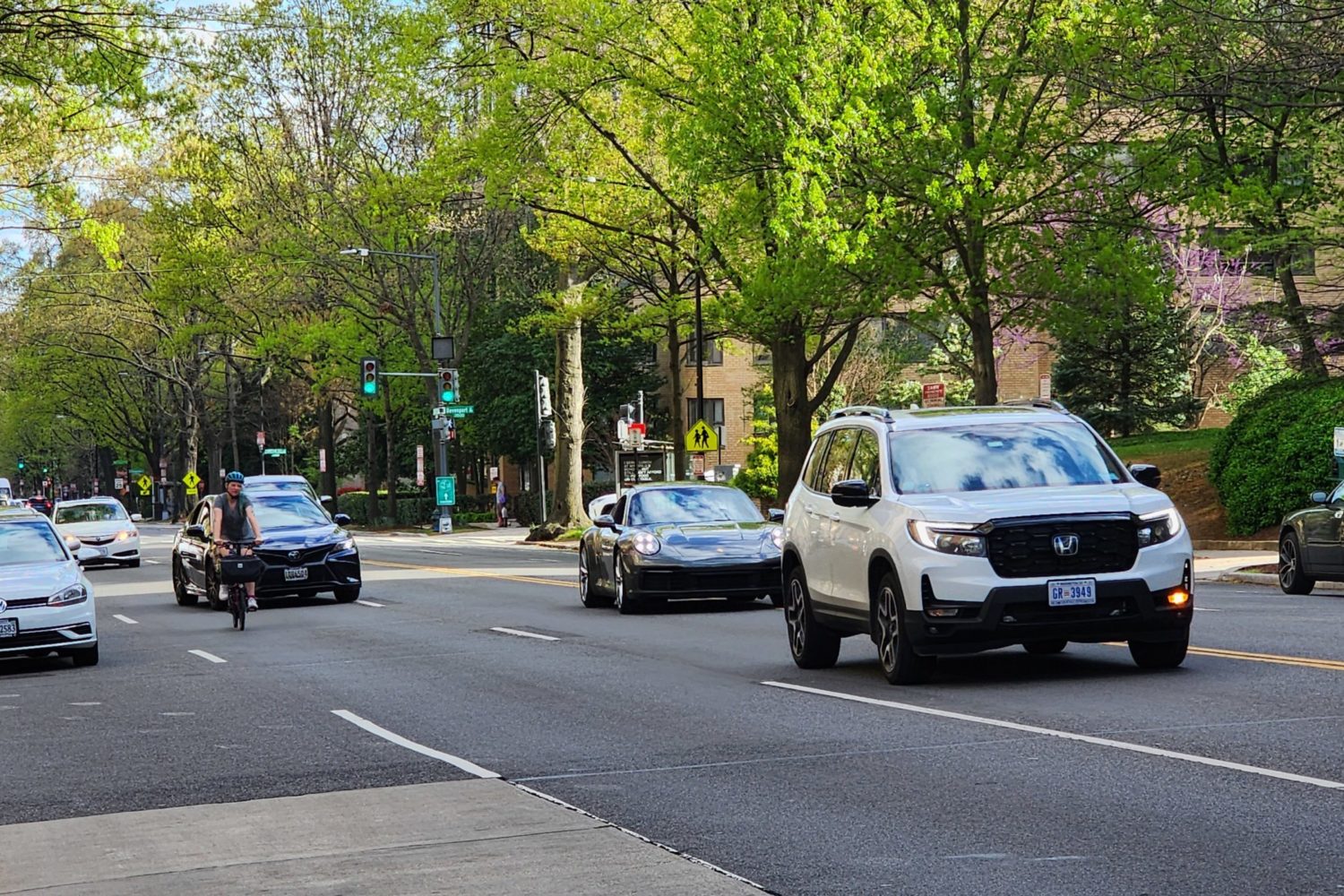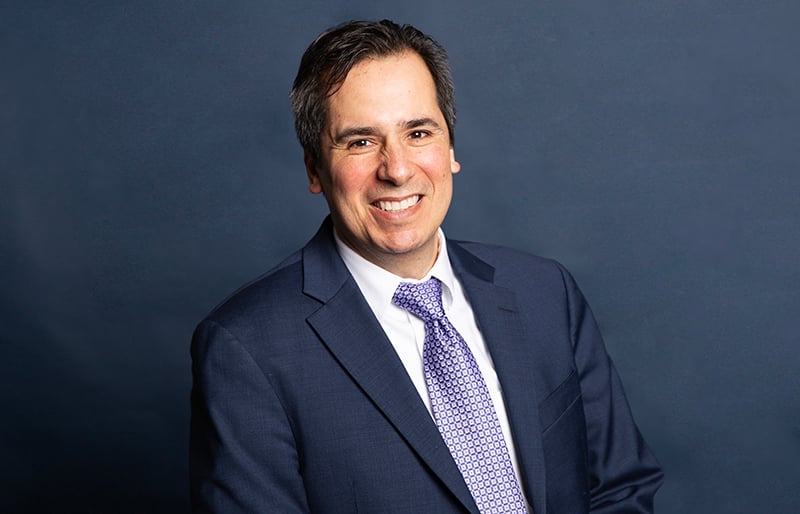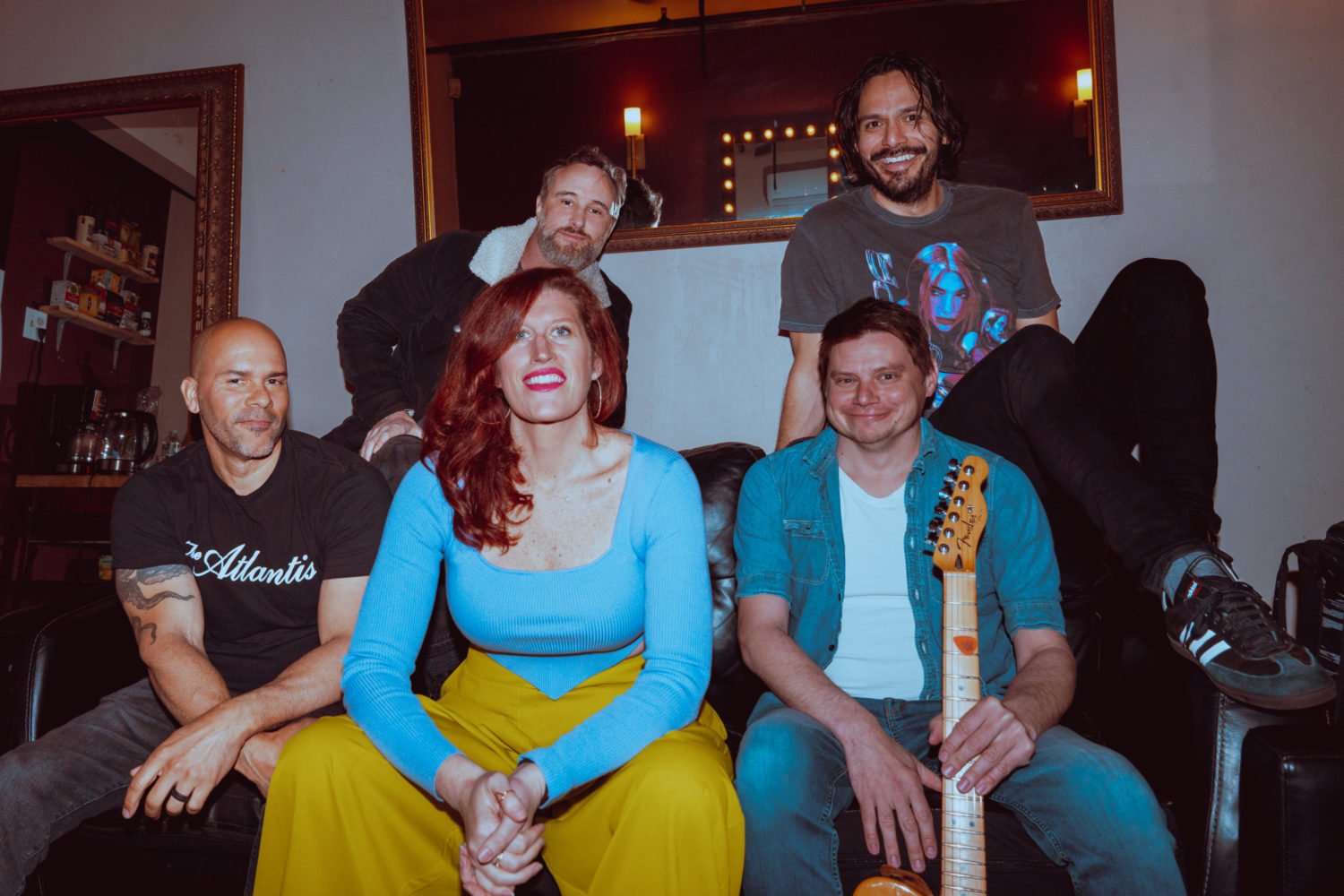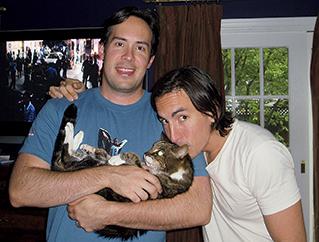
I was raised in a so-not-a-cat family. All dog, all the time.
Dog people are cool.
Cat people are crazy.
I am so not a cat person.
In my grown-up home in Bethesda, my Labrador, Buffy—“the mellow yellow”—was the beloved senior member of a menagerie that included fish, parakeets, cockatiels, and the occasional hamster. No cat.
Which is why I was surprised in August 1990 to find myself driving home with a three-to-four-month-old kitten—a feral kitten, actually. Part of a roaming litter in the back yard of a friend living in Georgetown, she had been captured by animal rescue people armed with a giant net. They said a feral cat would calm down in days if confined to a small space and talked to quietly.
I had a bit of a wild child of my own, my younger son, Jonathan, 12. So I got to thinking: It could be a good fit.
Iraq had invaded Kuwait days earlier. We named her Baghdad.
Bags was all cat—crabby, persnickety, not interested in cuddling unless she had 30 seconds to spare. But she let my wild child scoop her up and hold her while she purred.
She followed him when he rode his bike. She got caught in a tree once and was too scared to come down. He came home from school and called up to her. She jumped straight toward him, and he caught her. She slept by his head at night.
The house had a balanced chaos to it. The mellow yellow Labrador was besotted with my equally laid-back older son, Webster, 13. As Buffy aged, Webster carried her upstairs at night to sleep in his bed.
Six months after Baghdad came, my producer at CNN showed up at the door holding a sick kitten, the last homeless member of a litter found in an alley near Dupont Circle.
I was outvoted when I suggested we name him Kuwait. We named him Doc, after Mets pitcher Doc Gooden, a household hero before he got into drugs and went to the slammer (the pitcher, not the cat).
Doc barely had his eyes open and had to be fed with a dropper. We took him to the vet for the beginning of his storied quest to become the unofficial winner in Guinness World Records’ “most expensive alley cat” category.
He was an able hunter who once left a dead chipmunk in my walk-in closet, but Doc was raised by the mellow yellow. They were soul mates. Doc came to believe he was a dog.
He patted your face with his paw until you woke up. He went on evening walks with Buffy, shared the same bowl of dog food, stretched out on the rug in the middle of the living room when guests arrived, bounded home across the neighborhood’s front lawns when called.
The three of them—Doc, Buffy, and my older son—all slept in a single bed together for years, a testament to communal living.
Buffy died first. Steady and sweet, she had been there as our household was rocked by a separation, a divorce, and my father’s death. She had first belonged to Dad, so it was as if we were letting go of him again, too. Sitting in the vet’s office as her breathing slowed, Jonathan urged her to run toward his grandfather. I thanked her for being our comfort zone. We mourned for months.
For almost as long, Doc wandered the house meowing or sat on the back of the couch looking out the front window. Baghdad remained in cat world.
We were a cat-only house now.
Over the years, Bags and my wild child grew calmer and grew up together. Doc basically took up residence on the top of the sofa, waiting for Webster to pull into the driveway each day, running to the door when he arrived.
The vet bills were jaw-dropping, particularly for Doc, who had kidney problems. Three times over the years, the vet asked if we wanted to let him go. Three times we couldn’t. Three times he had surgery and pulled through. The boys visited him in the hospital. My Visa bill was pornographic.
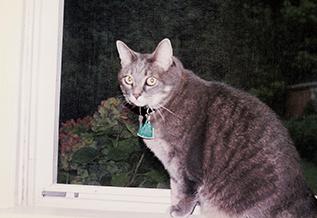
The cats were the silent helpers of a single mother, constants in an inconstant schedule, purring when I was sharp, at home when I wasn’t. They couldn’t talk, but I know they listened. I’m sure they understood in the times I did not.
When the boys left for college, Baghdad and Doc filled a part of my empty nest and two corners of my bed. Doc would eventually take a five-year leave of absence to Charlottesville to serve as friend and commiserator to Webster when he came home after 30-hour shifts as a medical resident.
Baghdad stayed with me, always at the door when I came home, less of a welcome than a statement that it was her house she was letting me share. Eventually, she began to jump into my lap, curl up closer to me in bed. It was just us girls, each of us less of a loner than we let ourselves think.
Bags died of kidney disease as the 2008 presidential campaign began. I took her to the vet, stroked her, thanked her for loving us in her cat way, and for being a loner with me. She was 17. I got on a plane to Chicago and waited for the seat-belt sign to go off so I could sit in the bathroom and sob.
The summer after Bags died, Doc returned from Charlottesville, handed over to me by my six-foot-three, 225-pound neurosurgeon son with tears in his eyes. It took a fiancée with allergies to separate him from the cat who thought he was a dog.
And now there was one.
The presidential campaign on full tilt, I found two friends to visit Doc each day and keep him company. By late summer, just before the conventions, I knew he was in trouble. I told the boys, now grown men, that Doc was dying. They traveled home to say goodbye.
He survived until Thanksgiving. A vet technician had been coming to the house daily since September. She gave him liquid medicine that made him froth at the mouth, a shot, a daily IV drip because he didn’t drink enough water, and a variety of pills.
I knew he was miserable, but I told myself he’d get better. I regret the final weeks.
I was gone Thanksgiving Day. When I came home, Doc was dead, doing for himself what I couldn’t do for him. He was 17. As I drove his body to the vet, I thanked him for watching over my boys, for being part of us.
I flew again to Chicago, now covering the Obama transition, saying nothing because I couldn’t. Sitting on the CNN bus one night, my cell rang. It was the vet technician telling me how sorry she was about Doc. I lost it. My producer asked, “Is it your mother?”
One day, I’m going to get another dog—and a cat. I am so a cat person.










